Description
ABSTRACT
An Analysis of the Powers of the Corporate Affairs Commission in Investigation of Companies
Professor Abiodun Amuda-Kannike, SAN*
The topic under reference is no doubt important especially as the Corporate Affairs Commission is clothed with enormous powers under the Companies and Allied Matters Act (CAMA) to investigate the affairs of any company it suspects of being run detrimentally to the interest of its members or of the general public. There are clear gaps in the enabling provision of CAMA which raises concern. Added to this is the power vested by CAMA in the Attorney-General of the Federation who could choose to prosecute or not irrespective of the preponderance of evidence available from an investigation report. These areas of concern form the theme of this paper.
INTRODUCTION
The essence of this work is to show how the Corporate Affairs Commission protects the rights of members of companies registered with it in order to give confidence to members of the public and whether it has been well handled within the Nigerian context. The power of the Corporate Affairs Commission to investigate companies’ affairs can be seen from Section 314 to 326 of the Companies and Allied Matters Act.1
The power of the Corporate Affairs Commission under the CAMA to appoint inspectors to inspect companies can be traced to the influence of English Law, and is analogous to the powers of the Secretary of State under the United Kingdom Companies Act to appoint inspectors to inspect the affairs of a company.2 Nigeria’s earlier Companies Act of 1968 contains a similar provision.3 In the case of Norwest Holst v Secretary of State for Trade,4 Lord Denning gave the background for the appointment of inspectors under section 165 of the United Kingdom Companies Act, 1948 thus:
It is important to know the background of the legislation. It sometimes happens that public companies are conducted in a way which is beyond the control of the ordinary shareholders. The majority of the shares are in the hands of two or three individuals. These have control of the company’s affairs. The other shareholders show little and are told little. They receive the glossy annual reports. Most of them throw them into wastepaper basket. There is an annual general meeting but few of the shareholders attend. The whole management and control is in the hands of the directors. They are a self-perpetuating oligarchy; and are virtually unaccountable. Seeing that the directors are guardians of the company, the question is asked? Quis custodiet Ipsos custodes? Who will guard the guard themselves?….It is because these companies are beyond the reach of ordinary individuals that this legislation has been passed to enable the Department of Trade to appoint inspectors to investigate the affairs of a company”.5
* Ph.D., BL. Managing Counsel, Amuda-Kannike (SAN) & Co, Port Harcourt, Rivers State. Dean of Faculty of Law, Poma International Business University, Cotonou, Benin Republic and Dubai, United Arab Emirates (U.A.E).
- CAP C20, Laws of the Federation of Nigeria, 2004 (hereinafter referred to as CAMA).
- See section 431 of the Companies Act 1985. Section 1035 of The Companies Act 2006 amended section 446 of the 1985 Act to give the Secretary of State the power to give directions to an inspector, which he is obliged to comply.
- See section 167 of the Companies Act, 1968.
- (1978) 3 All ER 280.
- At page 292.

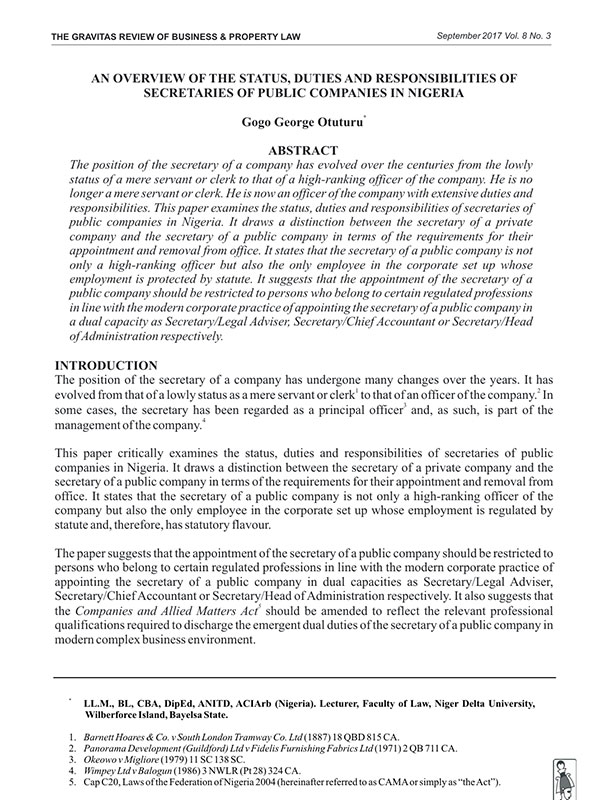
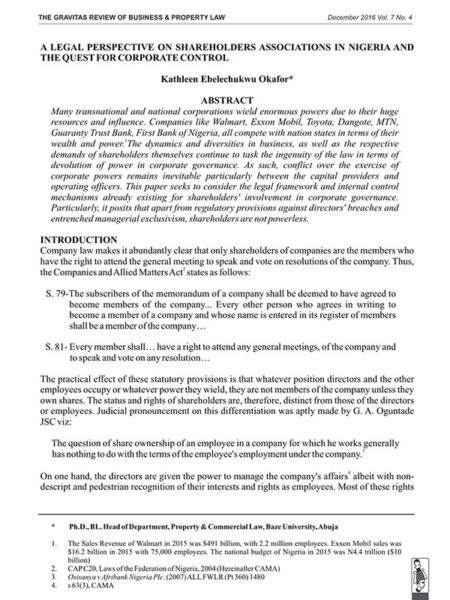
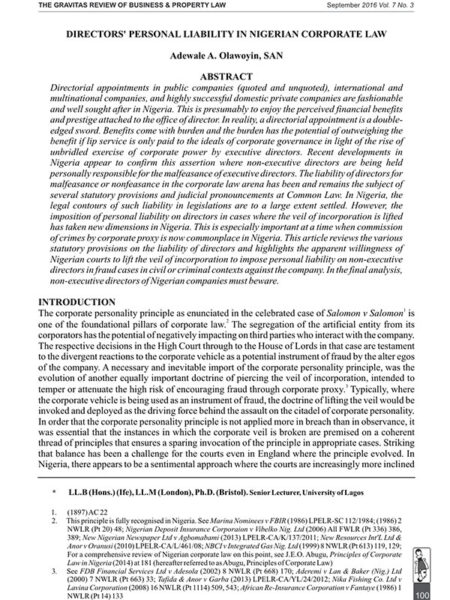
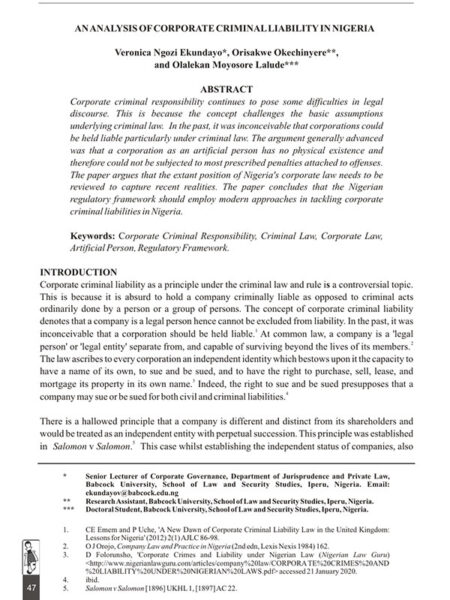
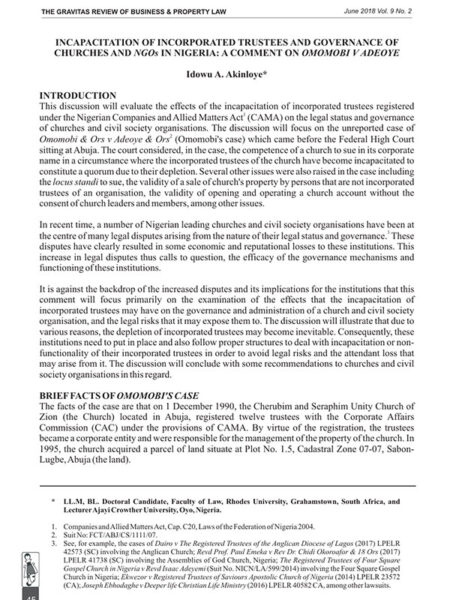


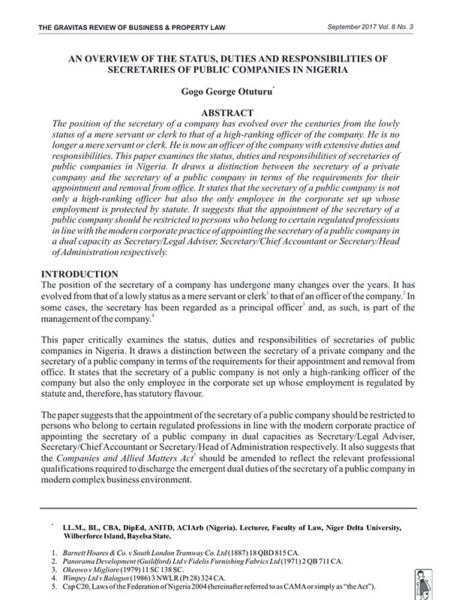
Reviews
There are no reviews yet.